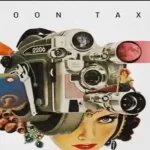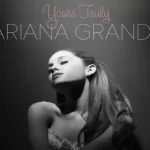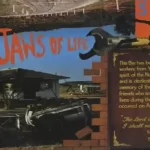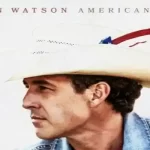Reggae music is a popular genre that originated in Jamaica during the late 1960s. Known for its distinctive rhythmic patterns, smooth melodies, and socially conscious lyrics, reggae has gained international recognition and has influenced various musical styles across the globe. In this in-depth exploration of reggae music, we will delve into its history, characteristics, influential artists, notable songs, cultural origins, and derivative forms.
Reggae Music Songs
Reggae music is characterized by its infectious beats, syncopated rhythms, and meaningful lyrics. Popular reggae songs often address social and political issues, spirituality, love, and cultural identity. Some notable reggae songs include Bob Marley’s “No Woman, No Cry,” “Redemption Song,” and “One Love,” Jimmy Cliff’s “The Harder They Come,” and Toots and the Maytals’ “Pressure Drop.” These songs showcase the diverse themes and musicality within the reggae genre.
Reggae Music Artists
Reggae music boasts a rich roster of talented artists who have made significant contributions to the genre.
| Artist | Notable Songs | Contribution |
|---|---|---|
| Bob Marley | “No Woman, No Cry,” “Redemption Song,” “One Love” | Widely regarded as the “King of Reggae”; popularized reggae music globally; advocate for social and political change |
| Peter Tosh | “Legalize It,” “Equal Rights,” “Stepping Razor” | Member of The Wailers; known for his powerful and politically charged lyrics |
| Bunny Wailer | “Blackheart Man,” “Rastaman Vibration” | Founding member of The Wailers; contributed to the development of reggae music |
| Jimmy Cliff | “Many Rivers to Cross,” “The Harder They Come” | Pioneering reggae artist; achieved international success; starred in the film “The Harder They Come” |
| Burning Spear | “Marcus Garvey,” “Slavery Days,” “Social Living” | Known for his powerful vocals and conscious lyrics; iconic figure in the roots reggae movement |
| Lee “Scratch” Perry | “War Ina Babylon,” “Roast Fish, Collie Weed & Corn Bread” | Producer and innovator of the dub reggae sound; influential figure in reggae music production |
| Toots Hibbert | “Pressure Drop,” “54-46 That’s My Number” | Frontman of Toots and the Maytals; known for his soulful voice and energetic stage presence |
| Dennis Brown | “Revolution,” “Here I Come,” “Love Has Found Its Way” | Crowned the “Crown Prince of Reggae”; highly regarded for his smooth vocals and prolific career |
| Third World | “Now That We Found Love,” “96 Degrees in the Shade” | Blended reggae with other genres like soul, funk, and pop; known for their catchy melodies and harmonies |
| Steel Pulse | “Handsworth Revolution,” “Ku Klux Klan” | British reggae band; known for their socially conscious lyrics and activism |
These artists have played significant roles in shaping the sound, popularity, and cultural impact of reggae music. They have contributed to the genre’s evolution and have left a lasting legacy in the music industry.

Reggae Music Examples
To understand the wide range of styles within reggae music, it’s important to explore different examples. Roots reggae, characterized by its deep basslines, heavy drum beats, and conscious lyrics, is one of the foundational subgenres. Dancehall reggae, on the other hand, emphasizes fast-paced rhythms and catchy melodies, often incorporating elements of hip-hop and electronic music. Other subgenres include dub, rocksteady, ska, and lovers rock, each with its own unique sound and influences.
Characteristics of Reggae Music
Off-Beat Rhythm:
One of the most distinctive characteristics of reggae music is the off-beat rhythm. The emphasis is placed on the second and fourth beats of the measure, creating a syncopated feel that gives reggae its infectious groove.
Skanking Guitar:
Reggae music is often defined by the skanking guitar technique. It involves rhythmic, muted strumming on the off-beat, contributing to the overall syncopated feel of the music.
Deep Basslines:
Reggae music is known for its deep and prominent basslines. The bass guitar plays a crucial role in providing the foundational groove and driving the rhythm of the song.
Horn Sections:
Many reggae songs feature horn sections, adding a lively and energetic element to the music. Trumpets, trombones, and saxophones are commonly used to create melodic hooks and powerful brass arrangements.
Laid-Back Tempo:
Reggae music typically has a laid-back and relaxed tempo. The slower pace allows for the distinct rhythmic patterns and intricate musical arrangements to shine through.
Socially Conscious Lyrics:
Reggae music often addresses social and political issues. It serves as a platform for artists to voice their concerns about poverty, inequality, racial discrimination, and other pressing societal matters. The lyrics reflect messages of unity, peace, and social justice.
Rastafarian Influences:
Reggae music is closely associated with the Rastafarian movement, and many reggae artists incorporate Rastafarian themes and beliefs into their lyrics. These themes often include spirituality, African heritage, and the worship of Haile Selassie I.
Call and Response Vocals:
Call and response vocals are a common feature in reggae music. The lead singer will often deliver a line or phrase, and the backing vocalists or the audience will respond with a melodic or rhythmic response, creating an interactive and engaging atmosphere.
Positive Vibes and Feel-Good Atmosphere:
Despite addressing serious issues, reggae music often exudes positive vibes and creates a feel-good atmosphere. The uplifting melodies, infectious rhythms, and messages of love and unity contribute to reggae’s ability to uplift spirits and bring people together.
Stylistic Origins
Reggae music is a fusion of various musical styles, drawing influences from traditional Jamaican folk music, African rhythms, American R&B, jazz, and ska. Ska, a precursor to reggae, emerged in Jamaica in the late 1950s and combined elements of mento, calypso, and American rhythm and blues.
Cultural Origins
Reggae music originated in the vibrant and culturally diverse country of Jamaica. The genre was born out of the socio-political climate of the time, reflecting the struggles, aspirations, and resilience of the Jamaican people. Reggae music provided a platform for marginalized communities to express their frustrations and share messages of hope and unity.
Derivative Forms
Reggae music has had a profound impact on the development of several derivative forms. One notable derivative is reggae fusion, which blends reggae with elements of other genres such as pop, hip-hop, rock, and electronic music. Artists like Shaggy, Sean Paul, and Rihanna have achieved mainstream success by incorporating reggae-inspired elements into their music.
FAQs about Reggae Music:
Q1: Who is considered the father of reggae music?
A1: Bob Marley is often referred to as the father of reggae music due to his immense contributions to the genre and his role in popularizing it on a global scale.
Q2: What is the significance of the red, gold, and green colors in reggae?
A2: The red, gold, and green colors are symbolic in reggae music and represent various themes. Red symbolizes the bloodshed of African ancestors, gold represents the wealth of Africa, and green signifies the beauty and lushness of the homeland.
Q3: How did reggae music influence other genres?
A3: Reggae music has had a significant influence on various genres, including hip-hop, punk rock, and electronic music. Its rhythmic patterns, lyrical themes, and distinctive sound have inspired countless artists and contributed to the development of new musical styles.
Q4: What are some notable reggae music festivals?
A4: Some prominent reggae music festivals include Reggae Sumfest in Jamaica, Rototom Sunsplash in Spain, Rebel Salute in Jamaica, and Reggae on the River in the United States.
Q5: Are there any reggae music museums or landmarks?
A5: Yes, there are several museums and landmarks dedicated to reggae music. The Bob Marley Museum in Kingston, Jamaica, is a popular tourist attraction that showcases the life and legacy of Bob Marley.
Q6: How has reggae music influenced fashion?
A6: Reggae music has had a significant influence on fashion, particularly through the Rastafari movement. Rastafarian symbols, such as dreadlocks, red, gold, and green colors, and African-inspired clothing, have become iconic within reggae culture and have been adopted by individuals around the world as a form of self-expression.
Q7: Is reggae music still popular today?
A7: Yes, reggae music continues to be popular worldwide. Its infectious rhythms, uplifting messages, and timeless appeal have ensured its longevity. Reggae artists and festivals attract a global audience, and the genre continues to evolve and inspire new generations of musicians.
Conclusion
Reggae music is a powerful and influential genre that has captivated audiences worldwide with its infectious rhythms, socially conscious lyrics, and rich cultural heritage. From its origins in Jamaica to its global impact, reggae has left an indelible mark on the music industry.
Through the iconic songs of artists like Bob Marley and the Wailers, reggae has become a symbol of resistance, unity, and hope. As the genre continues to evolve and inspire new artists, reggae music remains a timeless force that transcends borders and brings people together through its universal messages of love, justice, and equality.








